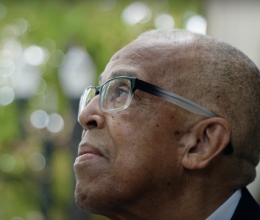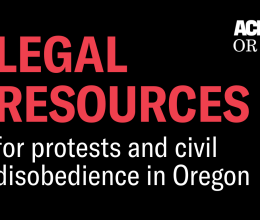
A lot of people are surprised to hear they may not get a lawyer at their first bail hearing: “Don’t I have a right to an attorney?”
You should – that’s what the ACLU has argued in court in Galveston, North Carolina, Oklahoma, Oregon, Pennsylvania, and Utah. But half of U.S. states do not guarantee counsel at first appearance. In these states, first appearance is typically a rushed proceeding where magistrates (limited-purpose judges) rubber-stamp detention orders without entertaining arguments to let people out of jail. This “hearing” often takes place inside the jail with no means of public access. Without defenders present to fight on behalf of arrestees, and without the check of public accountability, the gross unfairness resulting from the lack of counsel can be lost on even the most well-meaning public officials.
Our most recent investigation in Travis County, Texas, documents what we commonly observe when we scratch the surface of these lawyer-less bail hearings. The ACLU of Texas organized volunteer law students to observe hundreds of first appearances in the first quarter of 2024. The results, digested by the ACLU’s data and analytics team, support our most recent lawsuit on counsel at first appearance and demonstrate why counsel at first appearance is so important. Here is what we found:
Judges are punting on release.
Magistrates order detention but tell arrestees that down the line, a lawyer might make a persuasive argument for release. This practice effectively punts the real release decision until after a lawyer is appointed and the case is assigned to the trial judge – jailing the arrestee in the meantime. The numbers bear this out: we observed magistrates require cash bail at significantly higher rates than Travis County claims over the total duration of criminal cases. Our observation confirms what magistrates are owning up to from the start: after lawyers are appointed, the lawyer’s advocacy secures release without cash bail and gets more people out. The days that people wait in jail for their lawyer matter. Beside the fact that any time jail is inherently harmful, people lose their jobs and can’t be home to take care of their families. And even a few days in jail without a lawyer increases the chances that people plead guilty and accept harsher sentences, because they’re fighting their cases on an uneven playing field.
People are at high risk of self-incrimination.
It’s natural for people to try to argue for their release: 29 percent of arrestees we observed made potentially harmful statements about their cases. People without legal training can’t realistically make a strategic choice about waiving the right to silence or deciding what to say. Even statements that are not outright confessions can limit strategies for the defense. It’s impossible to know from court observation alone how harmful these statements are in the scheme of each person’s criminal defense. But the harm of some statements, including those documented in our subsequent lawsuit, is painfully obvious:
- It happened a long time ago
- I have no choice but to be in that area (site of alleged trespass)
- Oh . . . well, I guess it was a crime
- If I could do it all over again, I would
Video appearances are inadequate and prone to abuse.
In the absence of counsel at first appearance, court and jail personnel begin to regard first appearance as an empty formality rather than a meaningful hearing on release. First appearances conducted by video reinforce this dynamic: magistrates see arrestees as images on a screen, rather than human beings whose freedom is on the line. In Travis County, we documented communication problems resulting from video feeds in 10 percent of first appearances. Respect for the purpose of first appearance had eroded so dramatically that magistrates conducted the hearing through a camera pointed at the meal tray slot on cell doors, forcing arrestees to communicate by bending over to talk through the narrow slot. When the magistrate and arrestee could not communicate, the magistrate relied on jail staff to relay what the arrestee was saying and whether it appeared they could hear. Follow-up reporting by the Austin Chronicle documented additional instances of this practice, leading a retired federal judge to comment on the importance of counsel at first appearance.
Many officials – even in progressive Austin, Texas – try to convince themselves that counsel at first appearance is a luxury rather than a necessity. These findings show the need for counsel at first appearance.







